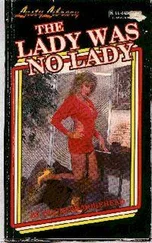A skinny, tall soldier begins to shout at the crowd in an agitated voice: ‘Everybody needs to step back!’ And he begins to push people away from the guard booth.
A young man comes out of the crowd and begins to yell back at him. He does not bother to conceal his frustration. ‘You want me to leave this elderly man standing in the sun? That’s not right.’ He points to an old man bent over a cane. The cane trembles in the old man’s hands, as if he were just learning how to use it. The old man begins to drag his feet away from the guard booth.
‘Everybody has to step back, like everybody else. Young and old, no exceptions. Go on, get back!’ The soldier goes on yelling as if we were deaf.
Finally, everyone steps back. An officer standing there grabs a small wooden chair at the wall and gives it to the old man. He then turns to the soldier and tells him not to worry about the old man. The soldier gathers up his spite and begins to hurl it doubly hard at everyone else. ‘Get the hell away from here! Get the hell back!’
The same young man walks up to the old man and helps him sit down in the chair in the shade by the wall. The old man puts his cane between his knees and rests his chin on it. I begin to study him more closely. The wrinkles on his face look like they were drawn by an artist wanting to depict a difficult and tired life. An entire life leaning on a cane at a border crossing. He reminds me of Ismail Shammout’s iconic painting, We Will Return . I imagine him walking straight into the picture and taking the place of the old man there. Did Shammout know that the Nakba would reproduce, generation after generation — and that with each new Nakba we would look again at his painting and reconsider the words, We Will Return ? Did he know that we would read those words over and over again throughout the years, even though we never did return?
‘Everybody back, I said!’ The soldier starts up again — as if he was a screaming machine. ‘We’re not collecting IDs right now. Get in line. We’ll do it one by one. You know the rules.’
You son of a bitch — if there were any real rules, we would not be sitting here all day in the hot sun waiting to walk one hundred metres across a piece of land that belongs to us in the first place .
The crowd begins to rush toward the kiosk, ignoring the man’s shouts. Sheepishly, I go along with everyone else. I am not at all accustomed to this kind of chaos — how it drives you on and changes how you act. It turns us into mayhem professionals who hate rules because we do not know what they look like.
The soldier begins collecting another batch of identity cards and permits from people who have just arrived. Then he stops abruptly, leaving dozens of hands hanging in mid-air, and dozens of voices pleading and wishing him all sorts of good things. ‘God bless you, sir!’ This man, for whom you wish nothing but a quick death, is suddenly the beneficiary of multiple prayers for a long, happy life. But this loud outpouring of well-wishing saves no one from his cruelty. He disappears, taking with him the new IDs and permits.
A couple of soldiers come forward and begin to push people away with their hands. I stand there, too timid to do anything, as if the soldier’s words were what planted me in my place. Then the crowd, like a wave crashing on the beach, plucks me up and tosses me behind the guardrail.
The officer now turns to the old man and begins to shout. ‘You’ve got to go too, old man. Come on, get up!’
‘Shame on you! He’s an elderly man. Don’t you have a father?’
Now a young woman holding a child joins in: ‘Don’t you have family?’
For a moment, the officer ignores her, then he wheels round and shouts at her: ‘You — you get back right now. Everybody back. No exceptions.’
The old man leans on his cane to stand up. He walks away with slow, heavy steps. He exits this little painting and returns to the real-life tableau of hundreds of Palestinians trying to get through the crossing. The old man steps aside, leans over and then sits down on the ground. The hot stones beneath him are like those in a bread oven.
From afar, I begin to study the officer. A stock character, straight out of central casting — the heroic guard standing at the gate, protecting the borders against the assaults of barbaric goyim. He comes back home at the end of each month and tells stories about how he could handle crowds of angry Palestinians all by himself. Bragging about how he deserves a promotion for so effectively abusing elderly Palestinian men. About how this checkpoint would break others who were not up to the task of working in the elite ranks of the Givati Brigade, the pride of the entire IDF.
I begin to shout at the soldier and the sound of my voice rips my insides apart and returns me to reality. In that very moment, I gather up my old self and push forward like everyone else around me — a refugee stranded at the threshold of his homeland.
‘You there — get out! Get away!’ The officer yells at me, and I find myself stripped down to nothing, nothing but the capacity to be yelled at and shooed away. I retreat with the crowd now trickling back toward the shade. I drag my suitcase and my disappointment behind me as I walk back. I cannot get the scene or the officer out of my mind.
By now I am tired. I have spent more than four hours in this detention centre. I look around for some shade — but most of the good spots are taken. I spy a wooden barrel in the shade and I rush over.
With a tissue, I wipe the sticky, crusty sweat from my forehead. I begin to stare at this officer, who has begun to build settlements in my mind.
Everyone is still standing around, waiting. Another half hour goes by, then a teenage soldier comes out of the kiosk. In her hand she is carrying a bunch of identity cards and permits. She begins to call out to the people they belong to. My eyes are glued to the pile of documents she is holding, trying to see whether my passport is among them.
The people whose names she calls gather around a wooden guardrail. The girl tells them to head over to the main building. She leaves and goes over to the VIP building.
Ten more minutes go by, then the girl comes back to the kiosk. She puts down her rifle and in a single breath rattles off a long list of names. She calls out the name of the old lady going to Absan. Off she goes, her feet slipping around in the Reeboks I gave her. My eyes cannot believe what they are seeing, my feet rejoice at the sight. For a few moments I forget all my waiting and impatience. Watching the woman helps to relax me. She seems to float across the scorched earth. She reminds me of all the mothers who live on the other side of these gates . As she disappears into the main building, I begin to cry again — the person she reminds me of is my own mother, still waiting somewhere over there.
The girl stops calling out the names on the new list, and for a second time, I do not hear mine among them. I look around and notice that the blue Opel has disappeared. They probably went into the main building when I was not looking. The invitation to stay with them in Hebron has now obviously expired.
Another soldier comes up to the group still standing around the desk. She has walked over from the VIP building carrying another stack of travel documents. Because there are so few in this bunch, I can see mine among them. She immediately begins to read off the names. I can feel the moment of my release drawing near. A few seconds from now, she is going to call my name. But when she gets to my passport she suddenly removes it and places it at the bottom of the stack again. She reads the name on the next document, and the man it belongs to rushes through the turnstile. Then the next one, and another man goes through as well.
Читать дальше












